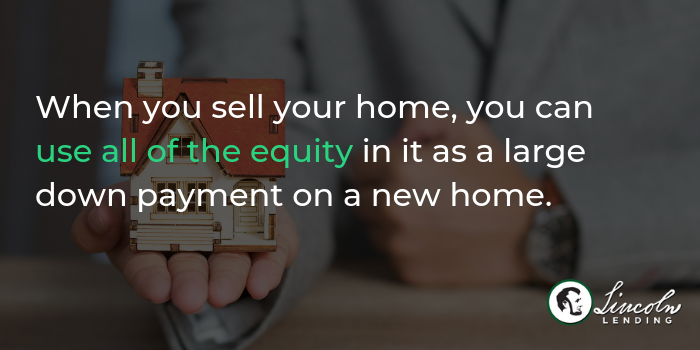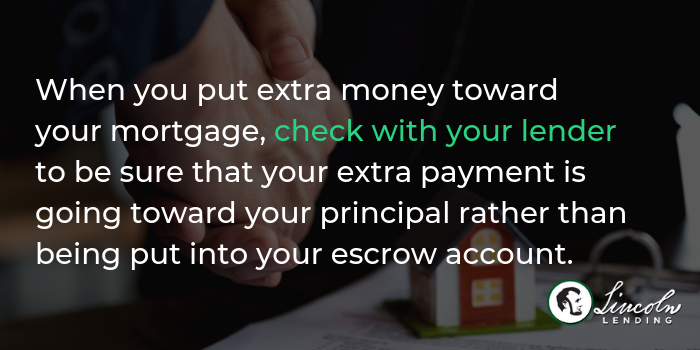People often talk about home equity, but do you know what it is or why it’s important?
Home equity is the difference between your home’s market value and the amount that you owe on your mortgage.
If your home is worth $300,000 and the remaining balance on your mortgage is $200,000, you have $100,000 in equity. Think of it as the amount of your home that you fully own.
Homeownership is a way to build wealth over time. As you pay down your mortgage month by month, you increase your ownership of an expensive, valuable asset. It’s a long-term investment and can really pay off over time.
So, what can you do to increase your home’s equity?
Benefits of Increasing Your Equity
There are two ways to build equity in your home:
- Increase your home’s value
- Reduce your mortgage debt
You can supercharge your equity by doing both. But why would you want to?
When you sell your home, you can use all of the equity in it as a large down payment on a new home. Many lenders will offer you a better interest rate when you have a large down payment, which saves you a lot of money over time.
You can also borrow against your equity with a home equity loan or a home equity line of credit. You can use home equity loans and lines of credit for home improvements or emergency expenses, among other things.
How To Increase Your Home’s Value
Recall that home equity is the difference between your home’s market value and the remaining balance on your mortgage. One way to increase your equity is to increase the value of your home. The greater the difference between your home’s value and your mortgage, the larger your equity.
Caveat: If the value of your home decreases suddenly, you lose equity. During the 2008 recession, many homeowners had negative equity because the value of their home was less than their remaining mortgage balance. We’re always hoping that the difference between the two numbers is positive.
Often, the value of a home will increase with inflation and the gradual rise in property value over time. This is a completely passive way to grow your equity.
You can also renovate your home to increase its value. Be sure that you choose renovations that are budget-friendly and impactful to get the best return on your investment. Focus on things that make your home safer and more comfortable. In many cases, a new roof will provide more equity than a new swimming pool.

If you know an appraiser, ask them about cost-effective renovations that help increase the value of your home. Most lenders and/or realtors can provide you with contact information for a licensed appraiser in your area.
How to Reduce Your Mortgage Debt
There are several ways that you can reduce your mortgage debt. Every penny you put toward your principal is an investment in your house, so the quicker you pay down your mortgage, the better.
Consider using one or more of the following strategies:
1. Make a Large Down Ppayment
Your down payment is instant equity. The more you can put down, the better. Many lenders also offer lower interest rates to buyers with large down payments. Over the life of your loan, a lower interest rate can save you a lot of money.
2. Get a 15-year Mortgage
15-year mortgages typically have lower interest rates than 30-year loans, which means you end up paying less for your home. Your monthly payment will be higher, but you’ll gain equity quicker and pay off your home in half the time. Consider starting with a 30-year loan from the beginning and then refinance into a 15-year loan as your budget allows.
3. Pay More on Your Mortgage
There are several strategies for paying extra on your mortgage. You can:
- Add a little extra to each monthly payment.
- Divide your monthly payment by 12 and pay that amount extra each month. At the end of the year, you will have made a full additional payment.
- Make biweekly payments. There are 52 weeks in a year, which means 26 biweekly payments. That adds up to 13 months of payments, which puts you a full payment ahead each year.
- Put extra money like tax refunds, gifts, and inheritances toward your mortgage.
- Commit to living on one spouse’s salary and putting the other salary toward the mortgage. Things may be tight, but the quick equity might be a fair tradeoff to you.
Caution!
When you put extra money toward your mortgage, check with your lender to be sure that your extra payment is going toward your principal rather than being put into your escrow account. Since interest is calculated using the principal balance, chipping away at your principal will reduce the amount of interest you pay over the life of your loan.
As you’re building your home equity, make sure that you’re paying attention to the rest of your finances as well. You should still save for retirement, maintain a savings buffer for emergencies, and pay down any credit card debt.
Investing Is a Marathon
Building home equity takes time, but it’s well worth it. Get in touch with our loan specialists if you have questions about paying extra on your mortgage or refinancing to lower your interest rate.

